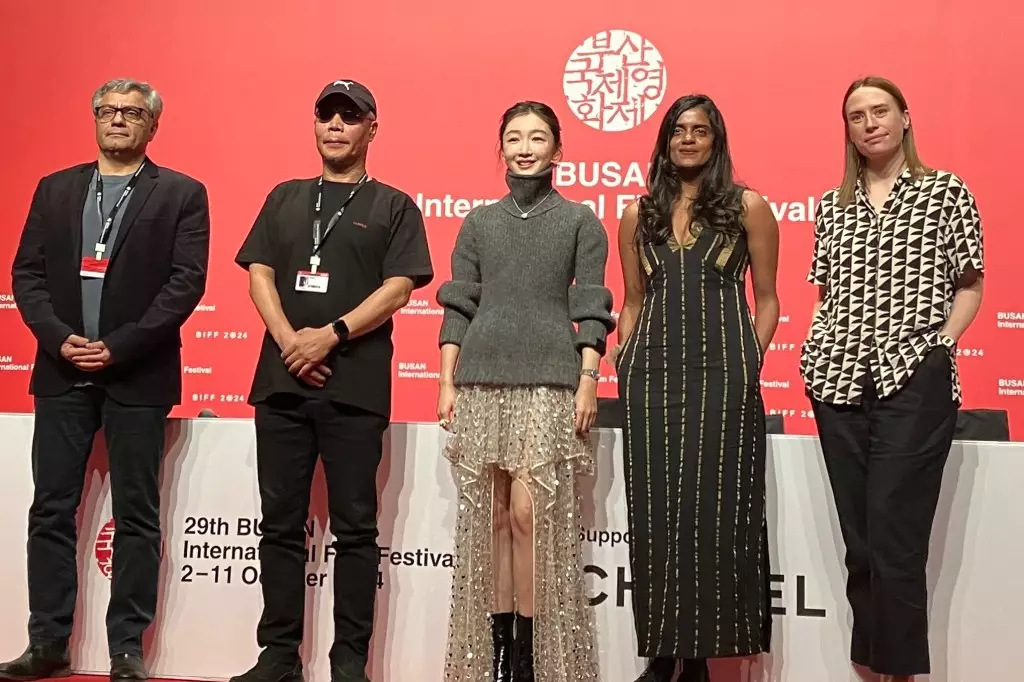In the landscape of international cinema, certain filmmakers stand out not just for their artistry but also for their tenacity against the odds. Mohammad Rasoulof is one such figure, known for his powerful storytelling, often set against the backdrop of stringent censorship. His latest film, *The Seed Of The Sacred Fig*, recently emerged as Germany’s submission for the Oscars, representing a significant milestone for filmmakers operating under oppressive regimes. Rasoulof’s situation is emblematic of the challenges many artists face when attempting to create meaningful work in environments that stifle freedom of expression.
Currently in exile in Germany, Rasoulof was forced to flee Iran shortly before the Cannes Film Festival due to an eight-year prison sentence stemming from his decision to produce the film without official approval. The recognition of his film at Cannes—where it consequently won a Special Award—serves as both an accolade and a testament to the resilience of artistic expression in the face of governmental repression. His narrative highlights how international audiences can embrace films that other countries might suppress, thereby extending a lifeline to artists facing dire circumstances.
A Symbol of Hope for Censored Filmmakers
The selection of *The Seed Of The Sacred Fig* as Germany’s entry for the Best International Feature at the Academy Awards is not merely a moment of personal triumph for Rasoulof; it carries profound implications for other filmmakers who similarly grapple with censorship. He articulated this sentiment during a recent press conference at the Busan International Film Festival, suggesting that the film’s acceptance could inspire filmmakers in Iran and beyond. “The selection of this film should give great hope for other filmmakers in Iran making films under censorship,” Rasoulof remarked, highlighting the potential ripple effect of his work.
The importance of this selection cannot be overstated, as it stands in contrast to the zero likelihood that films like Rasoulof’s would gain consideration from the Iranian government’s Oscars committee. This divergence raises critical conversations about the role of international film festivals and the importance of diverse voices in the cinematic landscape. Rasoulof’s ability to navigate these cultural tensions underlines the intrinsic link between art and freedom, emphasizing that voices repressed in one locale might find acceptance and recognition elsewhere.
A Festival of New Talents and Diverse Cinematic Language
The Busan International Film Festival is known for showcasing the talents of emerging Asian directors through its New Currents competition, aimed at first or second-time filmmakers. This year’s jury, which includes notable figures such as Korean director Lee Myung Se and Chinese actress Zhou Dongyu, reflects a rich tapestry of cultural backgrounds and artistic visions. The diversity of the jury is crucial as they explore the intricate layers of storytelling prevalent in contemporary cinema.
Lee Myung Se spoke candidly about the challenges faced by Korean cinema in the post-pandemic era, suggesting that internal turmoil, rather than just external factors, has contributed to the industry’s struggles. He noted his intent to seek out films that resonate with authenticity in a time of crisis. Such sentiments reflect a broader struggle within global cinema—balancing commercial interests with genuine artistic expression.
Indian cinema, too, finds itself at the intersection of celebration and controversy. Kani Kusruti, another juror at Busan, highlighted the burgeoning quality and diversity of Indian films, despite frustrations over Oscar selections that neglect notable works like Payal Kapadia’s *All We Imagine As Light*. Kusruti remarked on the ongoing vitality of the industry and the advancements in craftsmanship seen across various genres, suggesting a bright future for Indian filmmakers who are eager to challenge traditional narratives and push boundaries.
Festival director Vanja Kaludjercic echoed this sentiment, acknowledging the vast array of cinematic expressions emerging from India. The recognition of Indian films at prestigious festivals and their increasing visibility on international platforms paint a picture of an industry in flux, rapidly evolving against the backdrop of cultural and aesthetic innovation.
The festival serves not just as a platform for showcasing talent, but also as a crucible for cultural exchange. As Zhou Dongyu pointed out, the evolving political landscapes between nations can have a direct impact on cinematic collaborations. With 2025 designated as a year of cultural exchange between China and South Korea, hopes are high for a rejuvenated relationship that nurtures artistic expression and strengthens collaborative efforts in filmmaking.
As the Busan International Film Festival continues to grant visibility to underrepresented voices and narratives, it stands as a beacon of hope not only for filmmakers like Mohammad Rasoulof, but also for countless artists worldwide aspiring to share their truth through the universal language of film. Through collaboration, understanding, and resilience, the future of cinema can be one that celebrates diversity and champions freedom.

